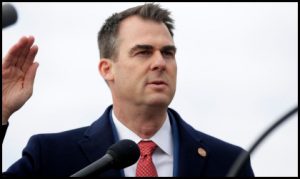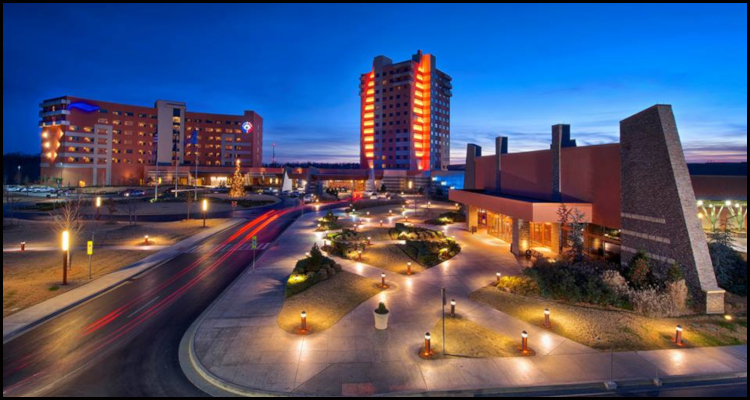Some of the largest tribe’s in Oklahoma have reportedly voiced concerns over a recent declaration by Governor, Kevin Stitt (pictured), that the western state should be getting a bigger piece of the estimated $2.3 billion its aboriginal casinos earn every year.
Casino compacts:
According to a Wednesday report from the Associated Press news service published by The Dallas Morning News newspaper, Oklahoma is home to approximately 120 gambling establishments operated by some 35 tribes under 15-year gaming compacts that are due to expire in January. These enterprises purportedly range in size from a few machines placed inside small gas station annexes to large resort-style casino hotels such as the Downstream Casino Resort located near the state’s borders with neighboring Missouri and Kansas.
Raised rates:
Despite this over-abundance, the news service reported that Oklahoma only collected around $139 million in exclusivity taxes last year, which are a feature of the compacts while being calculated at between 4% and 10% of a venue’s gambling revenues. This discrepancy led the Republican Governor, who is also a citizen of the federally-recognized Cherokee Nation of Oklahoma, to pen a Monday opinion piece in which he called for these rates to be raised as part of the state’s renegotiation of the deals later in the year.
Stitt’s piece reportedly read…
“In this case, that means sitting down with our tribal partners to discuss how to bring these 15-year-old compacts to an agreement that reflects market conditions for the gaming industry seen around the nation today.”
Breakdown hazard:
46-year-old Stitt, who only assumed his four-year position in January, believes that these compacts must be renegotiated before they can be renewed. He purportedly additionally contended that any failure to finalize an arrangement would leave the concerned tribe unable to operate slots or profitable card games such as blackjack and poker.
Careful counter:
However, the piece in The Dallas Morning News contains a refutation from the Chairman for the Oklahoma Indian Gaming Association, Matt Morgan, that any such breakdown would only result in the automatic renewal of an existing deal. Also a member of the casino-operating Chickasaw Nation, the representatives purportedly furthermore expressed disappointment that ‘most tribes’ had only learned on Stitt’s new stance via the opinion piece.
Morgan reportedly told the Associated Press…
“For the Governor and his staff to take that stance and posture from the beginning; I think that was very surprising to a lot of tribal leaders.
Bighearted benevolence:
John Berrey, Chairman for the Quapaw Nation, reportedly joined the condemnation of Stitt’s new stance by pointing to the fact that exclusivity fees do not encompass the millions of dollars Oklahoma tribes invest every year in education, health care and infrastructure projects that benefit residents across the state. His tribe is responsible for the Downstream Casino Resort as well as the nearby Quapaw Casino and is spending upwards of $350 million in hopes of being able to open its new Saracen Resort Casino in the neighboring state of Arkansas by November of 2020.
Berrey reportedly told the Associated Press…
“What I don’t understand in any of his op-ed, there’s no recognition of the true value of the tribes. Tribes are one of the largest employers in the state. We provide benefits for our employees. We’re probably the most philanthropic group in the state.”
Confused comparison:
Kimberly Teehee, Government Relations Vice-President for the casino-operating Cherokee Nation Businesses arm of the Cherokee Nation of Oklahoma, reportedly declared that measuring the exclusivity fees paid by tribal casinos against the commercial rates their rivals are charged in other jurisdictions represented ‘an apples-to-oranges comparison’.
Teehee reportedly told the news service…
“Commercial casino operators do not pave roads in their states, build homes for people in their communities, provide college scholarships to needy students or keep hospitals open in rural and underserved communities.”



